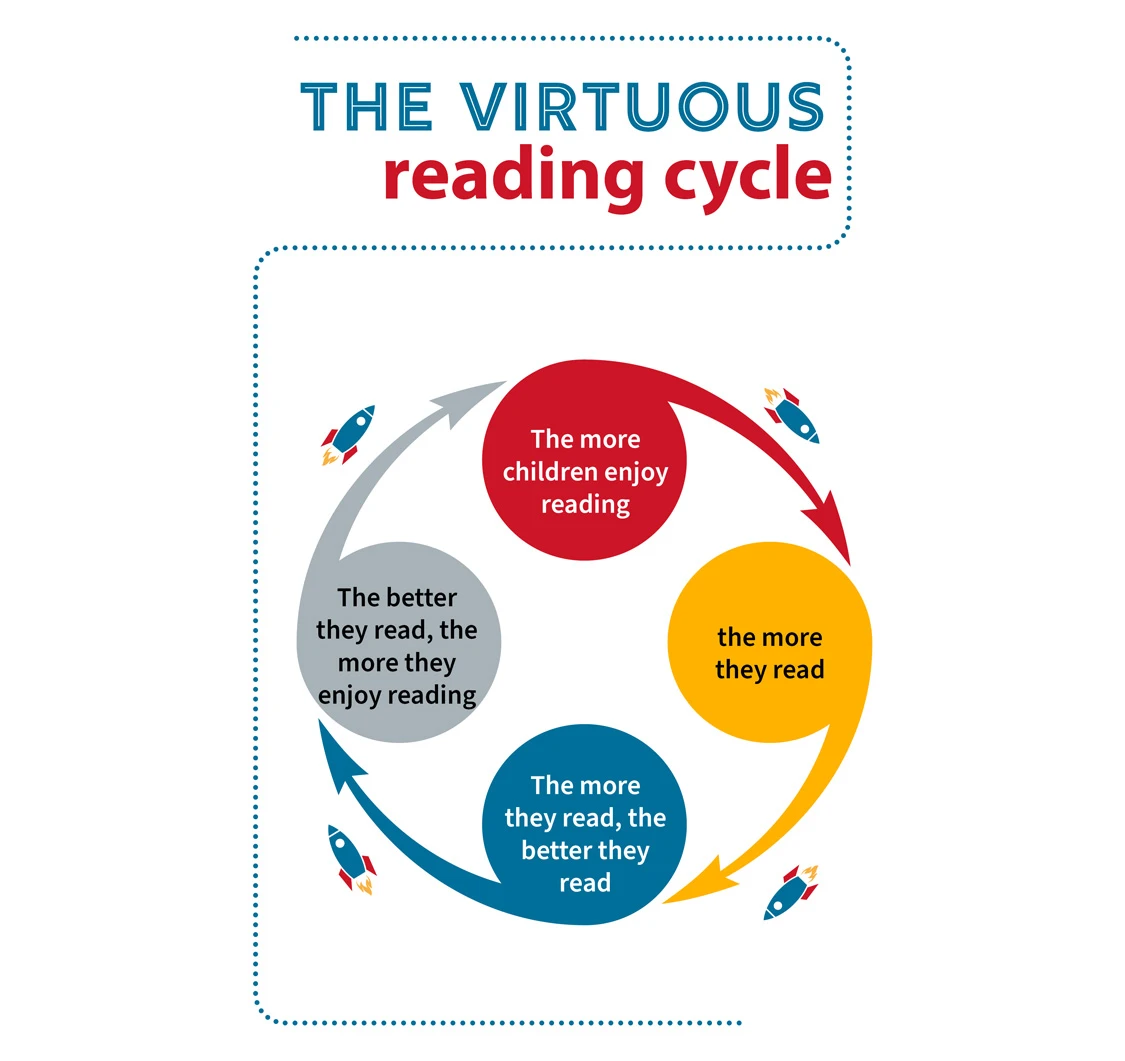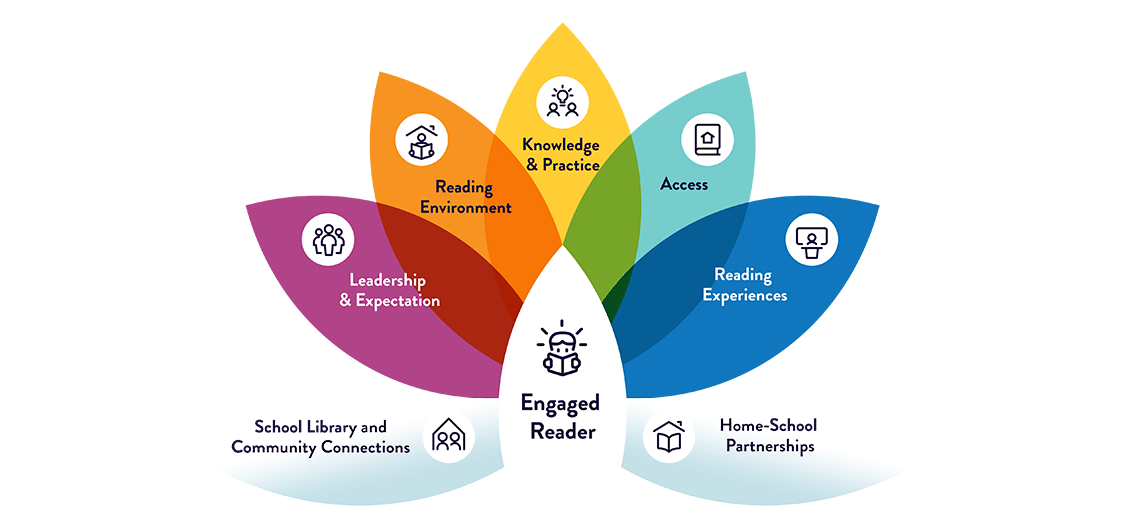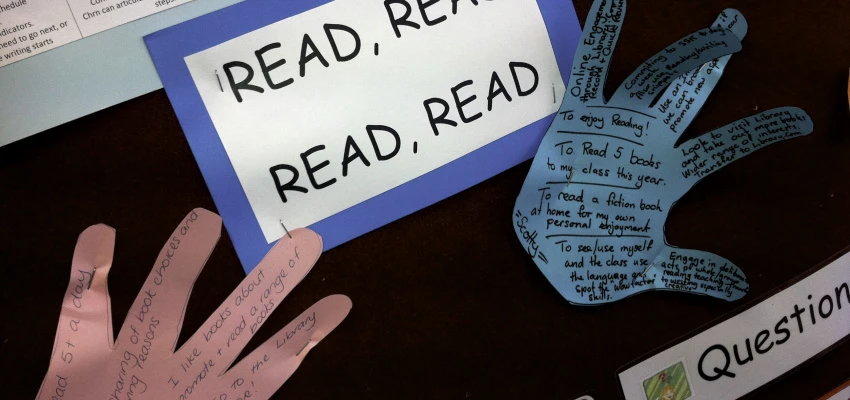Reading for pleasure — a door to success

Image credit: Photo by Ekaterina Bolovtsova. Pexels. License to use.
Reading for pleasure engages the imagination. Research shows it has other far-reaching benefits such as improving literacy, social skills, and health and learning outcomes. It is also included in Te Mātaiaho — New Zealand Curriculum refresh.
What is reading for pleasure
Reading for pleasure is also referred to as independent, leisure or recreational reading.
The National Literacy Trust (UK) defines reading for pleasure as:
Reading we do of our own free will, anticipating the satisfaction we will get from the act of reading.
— Christina Clark and Kate Rumbold, Reading for pleasure: A research overview
They add that it may have begun at someone else's request, which we continue because we are interested in it. The report describes reading for pleasure as an act of play — one that allows us to experience different worlds in our imagination. And reading for pleasure is a creative and active/interactive process.
According to Professor Teresa Cremin:
Reading for pleasure is more closely associated with intrinsic motivation; it is reading that children do for themselves at their own pace, with whom they choose and in their own way.
— Reading communities: Why, what and how?
Why reading for pleasure matters
Research shows that the benefits of reading for pleasure are extensive and long-reaching. Reading for pleasure:
boosts academic achievement, and provides a foundation for critical, digital and information literacy
builds cognitive function and stamina when immersed in the flow of reading
develops empathy and knowledge — of self, other worlds, culture, heritage, and ways of being and thinking
empowers students to become active citizens
improves and builds psychological wellbeing and healthy behaviours, and
crucially for young people, can be relaxing and provide an escape.
Research on reading engagement
Reading for pleasure is both an independent and social practice. It enhances reading programmes, school culture and individual wellbeing.
Reading for pleasure counts as learning. There’s so much research that shows children who read for pleasure have all sorts of better life outcomes including achievement … Reading is meant to be a joyful, purposeful, exciting experience and learning skills is important so you can have those experiences, it’s not an end in itself
— Sue McDowall, How teachers who read create readers
Included in Te Mātaiaho | the refreshed curriculum
The refreshed English learning area now includes reading for pleasure across all phases of learning from year 0 to year 13. This acknowledges the important role school leaders, teachers and library staff have in supporting and nurturing the will to read.
Refreshed English learning area
Learning to read for pleasure is a serious matter — NZ schools should embrace a new curriculum — The Conversation, 2023
Improves learning
The ability to read competently and, more importantly, the enjoyment of reading has implications for a student’s academic success.
There is debate about the best way to improve literacy. But evidence shows that reading for pleasure improves learning. In 2021, OECD research reported that reading enjoyment is an important prerequisite to becoming an effective learner. They also noted a strong link between reading, motivation and skill in adults.
Interest in reading is a much more important prerequisite for acquiring skills than having a parent who holds a higher education degree (as compared to no qualification). Sullivan and Brown (2013) suggest that independent reading can promote a self-sufficient approach to learning overall, with positive implications for achievement in other subjects.
— OECD Skills Outlook 2021: Learning for Life
Reading for pleasure: how and why does it enable children to do better at school? — Michael Rosen blog post, 2022.
The impact of pleasure reading on academic success — Christy Whitten, Sandra Labby and Sam Sullivan, 2016.
Maths advantage for pupils who read for pleasure
Reading for pleasure and progress in vocabulary and mathematics
Has a positive impact on reading achievement
International research strongly suggests frequent reading for enjoyment helps raise reading achievement.
Reading for pleasure had a positive impact on:
reading attainment and writing ability
text comprehension and grammar
breadth of vocabulary
positive reading attitudes
self-confidence as a reader
pleasure in reading in later life.
Reading for pleasure: Supporting reader engagement — Teresa Cremin and Gemma Moss, 2018.
Reading volume and reading achievement: A review of recent research — Richard Allington and Anne McGill-Franzen, 2021.
Research evidence on reading for pleasure — UK Department of Education, Education Standards Research Team, 2012.
In 2022, The Education Hub investigated the state of literacy in New Zealand Aotearoa. Amongst other findings, they identified a need to encourage reading for pleasure to positively impact reading achievement.
… it is crucial that we develop a robust strategy to support students to read widely for pleasure. Research is clear that even when controlling for other factors, reading for pleasure is strongly correlated with better reading comprehension, in large part because reading for pleasure allows students to gain access to a broad array of vocabulary and other knowledge. Given that PISA data has revealed dramatic declines in students’ reading for pleasure over the past decade, a plan to reverse this is urgently required.
— Nina Hood and Taylor Hughson, Now I don’t know my ABC
There is much discussion about declining literacy rates. But it's important to know that reading enjoyment can support reading development and has long-term benefits.
Other life benefits
Enjoyment of reading is also an important indicator of success in other areas of life.
The ‘Growing independence: Summary of key findings from the Competent Learners at 14 Project’ report found that students who love reading had:
higher scores on the cognitive and social/attitudinal competencies
consistently higher scores in mathematics, reading, logical problem-solving and attitude
higher average scores for engagement in school, positive communication and relations with family, and positive friendships
less risky behaviour
higher levels of motivation towards school.
Growing independence: Summary of key findings from the Competent Learners @14 Project — New Zealand Council for Educational Research.
Social and emotional wellbeing
As well as academic benefits, reading for pleasure provides social and emotional gains including:
an increase in empathy and social skills
improvement of health and wellbeing
enjoyment and stimulating the imagination.
… children’s enjoyment of reading is related to a longer life, better mental well-being and healthier eating … But reading for pleasure is also good for communities because readers tend to be good at making decisions, have more empathy and are likely to value other people and the environment more.
— Kiwi kids who read for pleasure will do well in other ways — it’s everyone’s responsibility to encourage them, The Conversation, 2021
Reading for hauora | wellbeing
Factors that create engaged readers
Certain factors increase the likelihood of creating engaged readers, such as ensuring students:
have access to books — print and digital
can choose their own books to read
have regular opportunities to read independently
are read aloud to regularly
have time to chat about books and reading
have reading role models.
Strategies to engage students as readers
Teachers love of reading inspires ākonga — Education Gazette, 2023.

The virtuous reading cycle published in Services to Schools brochure ‘Help your child become a reader’ — Reading at home.
Trends in reading engagement
The ‘Literacy landscape in Aotearoa New Zealand’ (LLANZ) report highlights declines in literacy levels and enjoyment of reading, along with significant and unchanged disparities among New Zealand 15-year-olds.
The report’s author Professor Stuart McNaughton, Chief Science Advisor to the Ministry of Education, notes that from about year 4 (ages 8 to 9 years), there is a shift from ‘learning to read’ to ‘reading to learn’. Literacy progress tends to slow. And there can be a one- to two-year difference in progress between Māori and Pasifika students and those from low socioeconomic status communities, and that of other groups.
The report emphasises the importance of reading engagement.
Students need to develop independent engagement in and motivation for reading and writing. Across many countries, 10-year-olds’ attitudes to reading and their ratings of confidence in reading are related to achievement, and these relationships are bidirectional (achievement levels affect attitudes and vice versa). Experimental studies show that engagement — or more specifically motivation and self-efficacy, as captured in descriptions of interest, dedication and confidence — are major determinants of achievement, and have bidirectional relationships over time.
— LLANZ report, page 39
Reading for pleasure has decreased over time
The 2019 National Monitoring Study of Student Achievement (NMSSA) English survey asked students how many hours they chose to read in their own time each week:
20% of year 4 students responded, ‘very little’
a further 22% selected ‘up to 1 hour a week’
26% of year 8 students selected ‘none or very little’
18% selected ‘up to 1 hour a week’.
NMSSA 2019 English: Key findings — Education Counts.
Programme for International Student Assessment (PISA) reports note that, on average, reading enjoyment has declined significantly since 2009. This decline is across OECD countries and in New Zealand. In Aotearoa New Zealand,
… More students said they ready only if they have to and read less often, and fewer students read fiction, non-fiction, magazines and newspapers regularly. At the same time, there have been increases in almost all online reading activities.
— PISA 2018: Reading in New Zealand — Reading achievement and experiences of 15-year-olds
The ‘2018 PISA insights and interpretations’ report found:
… larger proportions of both boys (an increase of 7 percentage points) and girls (an increase of 9 percentage points) agreed that ‘I read only if I have to’. When asked how much time they usually spend reading for enjoyment, more than 75% of boys reported either none at all or less than 30 minutes a day; less than 3% reported that they read more than two hours a day.
— PISA 2018 insights and interpretations (pdf, 2.1MB)
Some contributing factors for this decline identified in research are:
lack of motivation
negative attitudes to reading (readers are boring, reading is boring)
peer pressure
lack of reading skills and subsequent low self-efficacy
lack of choice and appropriate high-interest resources
competing priorities
inconsistent teacher/school messaging and implementation
lack of understanding around the value and importance of reading for pleasure.
Perceptions of the importance and values of reading — Margaret Merga and Saiyidi Mat Roni, 2018.
We need to develop students who are readers
These findings suggest that we need to pay attention to developing students who can read. But we also need to develop students who want to read — that is, students who are readers.
Find out more
Kids & Family Reading Report: 7th edition — Scholastic, 2019.
Literature Review: The impact of reading for pleasure and empowerment (pdf, 999KB) — The Reading Agency, June 2015.
On the edge of adulthood: Summary of key findings from the Competent Learners @16 project — New Zealand Council for Educational Research.
Professor Barbara Sahakian: Reading for pleasure — in this RNZ interview, Dr Barbara Sahakian discusses a Cambridge University study that found reading for pleasure at a young age had a positive impact on school performance, stress and sleep.
'Reading enjoyment' is ready for school: Foregrounding affect and sociality in children’s reading for pleasure — New Zealand Journal of Educational Studies, 2022.
Reading for pleasure — Centre for Literacy in Primary Education
Reading for pleasure pedagogy — Open University Reading for Pleasure website.
Social inequalities in cognitive scores at age 16: The role of reading — research from University of London’s Institute of Education.
Want kids to love reading? Authors Grace Lin and Kate Messner share how to find wonder in books — Mindshift article, February 2023.
Books
Cremin, Teresa & Hendry, Helen & Rodriguez-Leon, Lucy & Kucirkova, Natalia. (2022). Reading teachers: Nurturing reading for pleasure. London: Routledge.
Merga, Margaret. (2019). Reading engagement for tweens and teens: What would make them read more? California: Libraries Unlimited
Miller, Donalyn & Kelley, Susan. (2013). Reading in the wild: The Book Whisperer’s keys to cultivating lifelong reading habits. San Francisco: Jossey-Bass
Ripp, Pernille. (2018). Passionate readers: The art of reaching and engaging every child. New York: Routledge
Wilhelm, J. & Smith, M. (2013). Reading unbound: Why kids need to read what they want — and why we should let them. New York: Scholastic.
Related content

Reading for hauora | wellbeing
The benefits of reading for pleasure extend beyond improving educational outcomes. It can reduce stress, improve empathy and nurture wider hauora (wellbeing). Discover more about how reading helps wellbeing. Find ways to support reading for wellbeing.
A school reading community
Effective school reading communities inspire and support students to read for pleasure. Use the School Reading Community Framework and watch a video to get strategies for creating a reading community.
Strategies to engage students as readers
Explore a range of strategies you can use in the school library, classroom or across the curriculum to encourage and support students to read for pleasure.